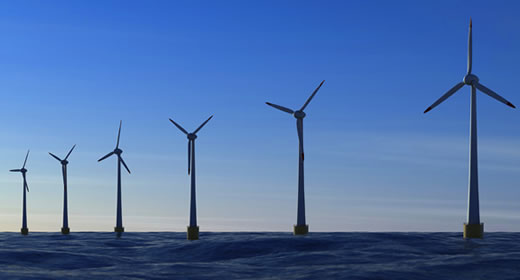
A majority of Americans (54 percent) want their state to submit an implementation plan to comply with the Clean Power Plan, according to CLOSUP’s latest survey. Another 22 percent would prefer their state not submit a plan and instead allow the federal government to impose its own plan on their state.
Only 6 percent would take the route that 28 states haven chosen: to refuse to submit a plan and sue the federal government to block the requirement. Some of these states, however, are concurrently exploring the possibility of developing state plans with their lawsuit
These findings were part of a new report from the National Surveys on Energy and Environment, a joint effort of CLOSUP, a research center at the Ford School, and the Muhlenberg Institute of Public Opinion at Muhlenberg College in Allentown, Pa.
The EPA’s Clean Power Plan establishes national standards to limit carbon emissions from power plants, but allows states to decide how to comply with the new regulations. Every state is given the opportunity to formulate its own approach to compliance, though all state plans must be approved by the federal government. Failure to submit a plan results in the imposition of a plan created by the federal government.
Perhaps unsurprisingly, partisan differences exist in regard to views on compliance. Democrats are less likely than Republicans to support suing the government, according to survey findings, but more likely to want the federal government to prepare a compliance plan for their state.
Also at play, according to the report, is whether you live in a state where the governor shares your party affiliation:
- Of Democrats in states where Republicans control the executive office, 34 percent would like the federal government to impose a plan on their states, compared to only 24 percent of Democrats living in states that do not have GOP governors
- Republicans living in states with Republican governors are the least likely (11 percent) to want the federal government to impose a plan, and the most likely (60 percent) to want their state to submit its own plan
There is, however, wide agreement among Democrats and Republicans on specific energy policies states might pursue in attempting to comply. Democrats and Republicans have similar opinions of increasing wind, solar, and natural gas-based electricity, and comparable feelings toward cap-and-trade policies, as well. The only place where there are significant differences in the overall level of support is on increasing energy efficiency standards. While 75 percent of Republicans support such increases, support is even greater among Democrats (90 percent).
The random telephone survey of 911 American adults was conducted between Sept. 2-24, 2015. The survey had a margin of error of 3.5 percent at a 95 percent level of confidence.
--Story by Paul Gully (MPP '16)
More news from the Ford School